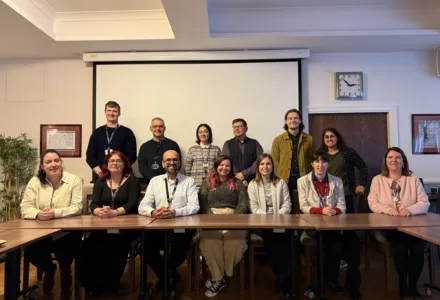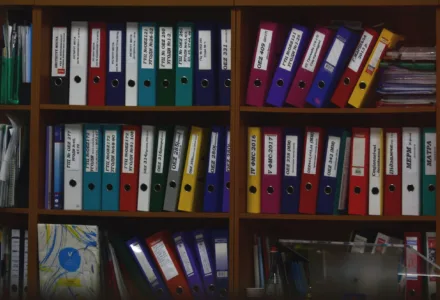Café events are a great way of engaging individuals and organisations with the spread of good ideas
Informal, Café style events are becoming a more popular platform for engaging members of the public with research and ideas sharing on various subjects. An early conceptualisation of this style of event is that of the World Café, which stemmed from the ideas of Brown and Isaacs (2008) and is described in an excerpt of their publication “The World Cafe: Shaping Our Futures Through Conversations That Matter” [1]. This model exemplifies the benefits of meaningful conversations as a way of sparking collective insight, exploring ideas and encouraging people to think of things in new ways.
One example of this is the Death Café model, which according to the Death Café website, has “spread quickly across Europe, North America and Australasia …. 9238 Death Cafes [held] in 65 countries since September 2011.”[2] Death Cafés have been held locally by St Barnabas, a Lincolnshire based hospice, who describe the events as “a group-directed discussion of death with no agenda, objectives or themes”[3] and aim to get people thinking about a difficult subject that often people tend to shy away from.
A series of Ideas Cafés have been set up in the past by Warwick University, with the events being designed as a conduit to “bring together members of the public and Warwick academics to discuss and engage in the exciting research that they are undertaking”[4]. Subjects that have previously been covered by Warwick University are climate change, Caribbean studies, and cancer research.
Inspired by the Death Café and The Warwick University models of idea and thought sharing, the LORIC Ideas Café with a focus on Autism was conceptualised. Using existing contacts and through advertising the event, the first Ideas Café was a sell-out, welcoming more than 20 local academics, professionals, parents and carers, all with a shared interest in autism in the context of Lincolnshire, a rural county with significant geographical barriers that affect access to local services.
Due to popular demand by the attendees, a mapping session was undertaken to identify and explore the local services available for people with autism at each stage in their life, from early years through to old age. This helped to share knowledge of services, referral processes and thresholds between those present, who were from a range of organisations, and allowed time for networking and discussion between attendees. The activity led to discussions around perceived gaps in services, and those present were able to share their knowledge of what was being done (if anything) to address these gaps in provision. Due to the success of the event, a second Ideas Café event, still with a focus on Autism was planned. The subsequent event was equally a success, and the Autism Ideas Cafés have now become an established event here at LORIC.
The impact of the LORIC Autism Ideas Café events so far have been wide ranging, with the principal one being that it has provided a platform for people interested in autism to meet, network, and share knowledge and ideas. Activities undertaken at the events have included mapping out what services are available locally for those with autism, identifying services that are open to all, and those where a professional referral is needed, as well as beginning to explore where there are gaps in provision locally that a multi-agency approach might hope to tackle. There has also been a presentation by the JobCentre+ on the support available to autistic adults. Topics of discussion have included: current autism research; autism support in early years’ services; autism and leisure opportunities; funding for autism related projects; careers and employability support for autistic adults; and welfare and benefits system support for those with autism.
Following on from these activities, there has been progress made by attendees that will hopefully support the autistic community in Lincolnshire, for example; The Family Services Directory team at Lincolnshire County Council have now included a “flag” for services that provide support for those with autism on their database which is hosted on the Lincolnshire County Council website. A working group has been established between Bishop Grosseteste University and Lincolnshire County Council which aims to provide a service which will support young adults with autism and other additional needs to access employment and be supported in the work place. Other outcomes include the dissemination of information on services, funding and new initiatives, and providing a starting point for a range of collaborations. These collaborations include a joint project between researchers from the Psychology department at Bishop Grosseteste University and the Engineering department of the University of Lincoln, and collaborations between Bishop Grosseteste University academics and local businesses, including careers professionals, activity providers, and a local massage therapist with an interest in using massage to reduce symptoms of anxiety associated with autism. A variety of ideas for collaborative work in relation to Autism locally are also in the pipeline, with some exciting new activities being explored for 2020.
When asked what they found the most useful about the Ideas Café events, attendees reported that the opportunity to network and collaborate with others with an interest in autism and to find out information about support and initiatives locally was important to them and that they found real value in attending the sessions, and that they felt that the less structure there was, the better it was for free-flowing ideas and discussions, which comes back to the findings of Brown and Isaacs, that conversations matter – they give a basis for experimentation with thoughts that can grow into something much larger.
Further reading:
Brown, J. (2002). The world café: Living knowledge through conversations that matter (Order No. 3041666). Available from ProQuest Central. (276286326). Retrieved from https://search.proquest.com/docview/276286326?accountid=8633
Gurteen, D. (2005). Spur organizational learning with a knowledge café. Knowledge Management Review, 8(4), 3. Retrieved from https://search.proquest.com/docview/217474795?accountid=8633
[1] https://www.bkconnection.com/static/The_World_Cafe_EXCERPT.pdf
[3] https://stbarnabashospice.co.uk/st-barnabas-hospice-brings-death-cafe-lincoln/
[4] https://warwick.ac.uk/about/publicengagement/events/climatechangeideascafe/
Related Posts

Visits to BGU from Innovate UK

LORIC Wraps Up Successful SED Project

Innovate UK’s East Midlands Knowledge Exchange Forum hosted on BGU campus!

Understanding the Economic Impact and Future Potential of Greater Lincolnshire’s Sport, Physical Activity & Leisure Sector

LORIC Wins Venue of the Year Award

Digitising the Archive of the 20th Century Philosopher John Macmurray
